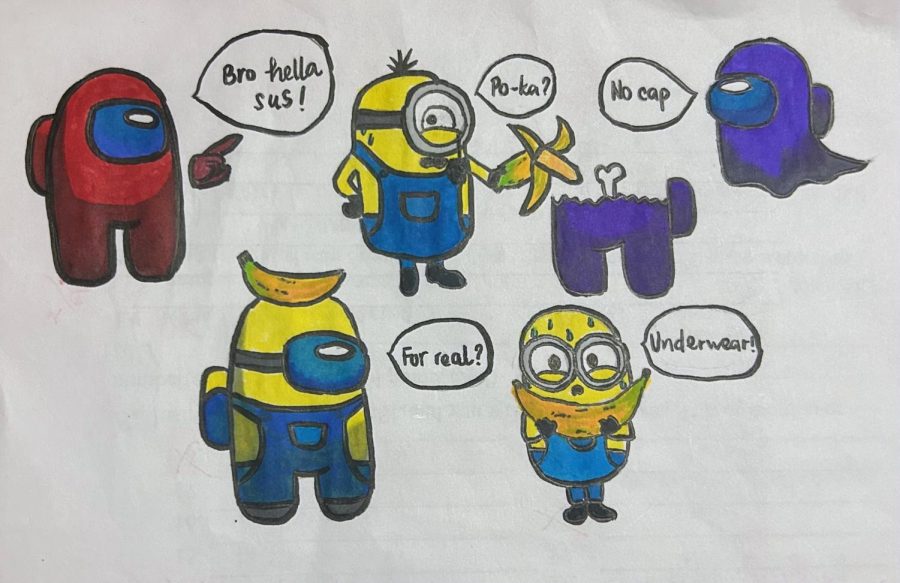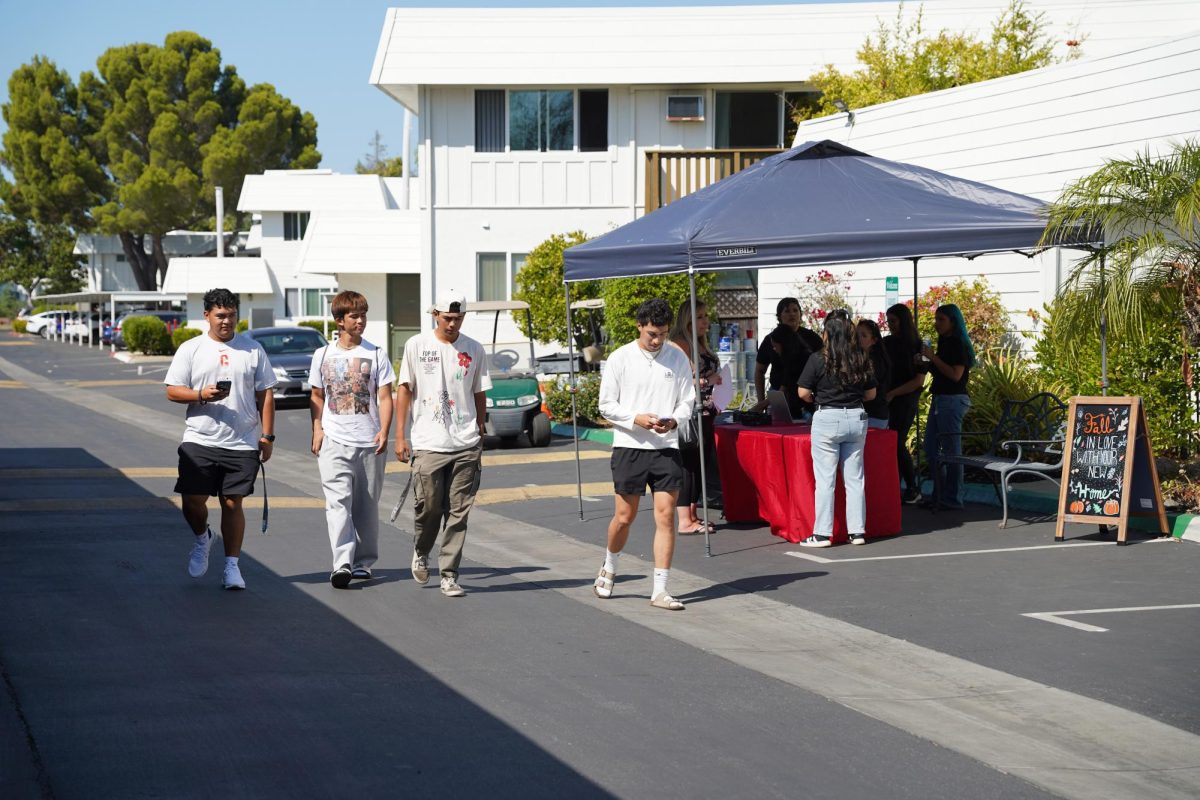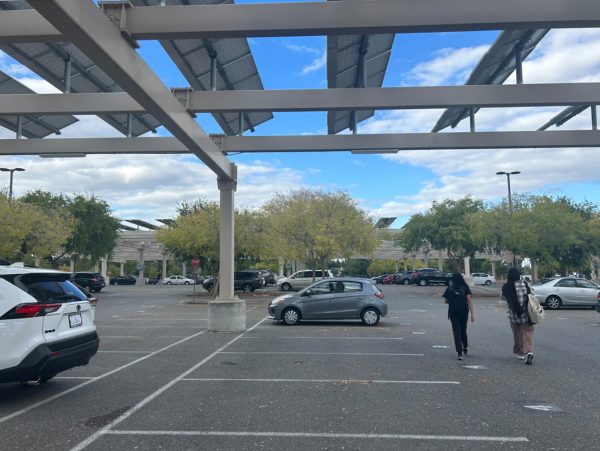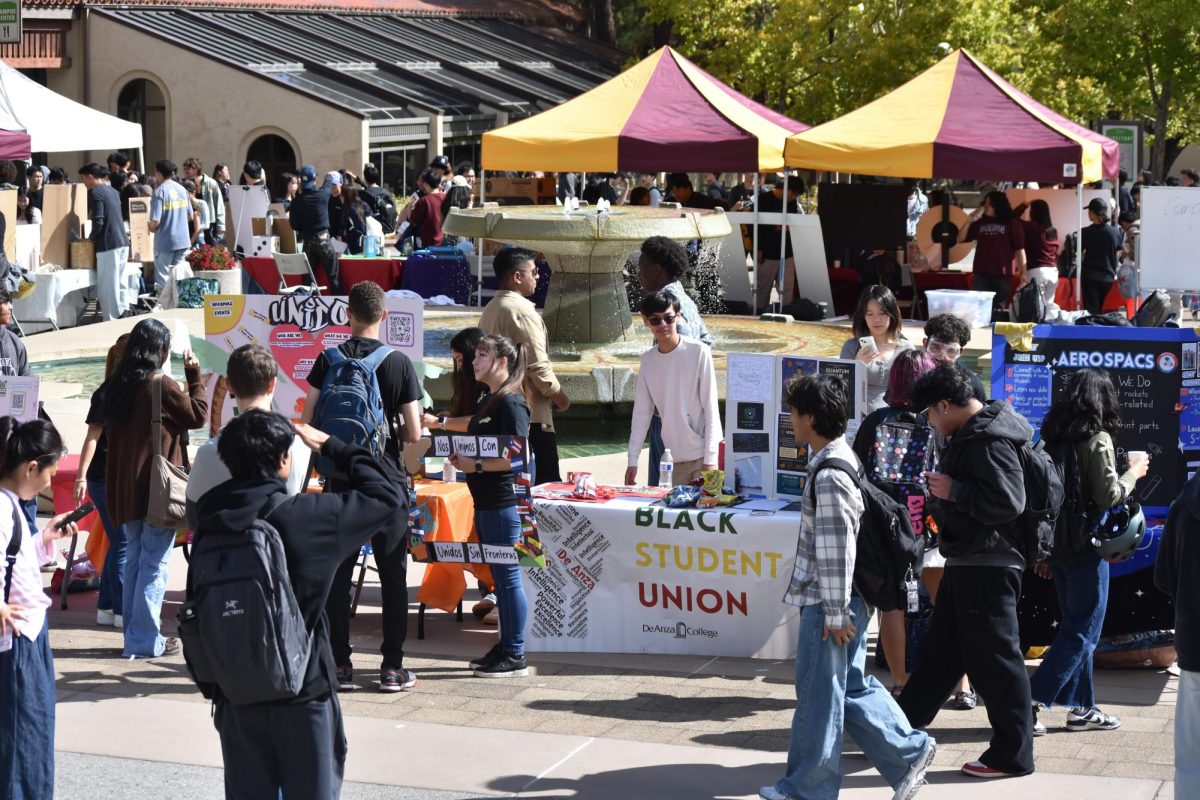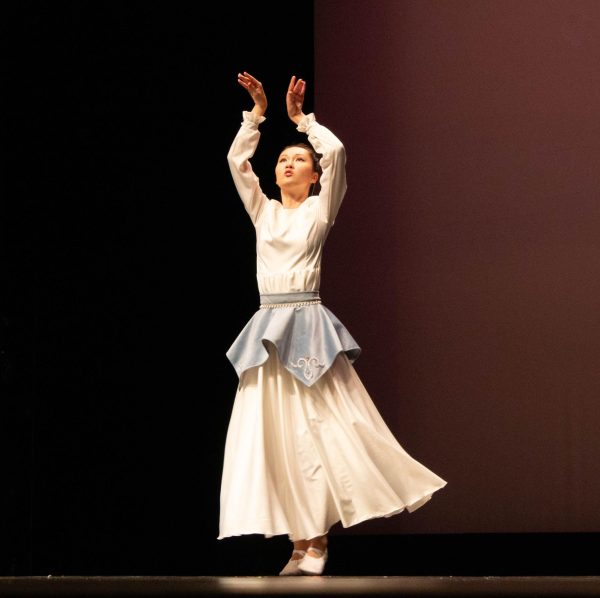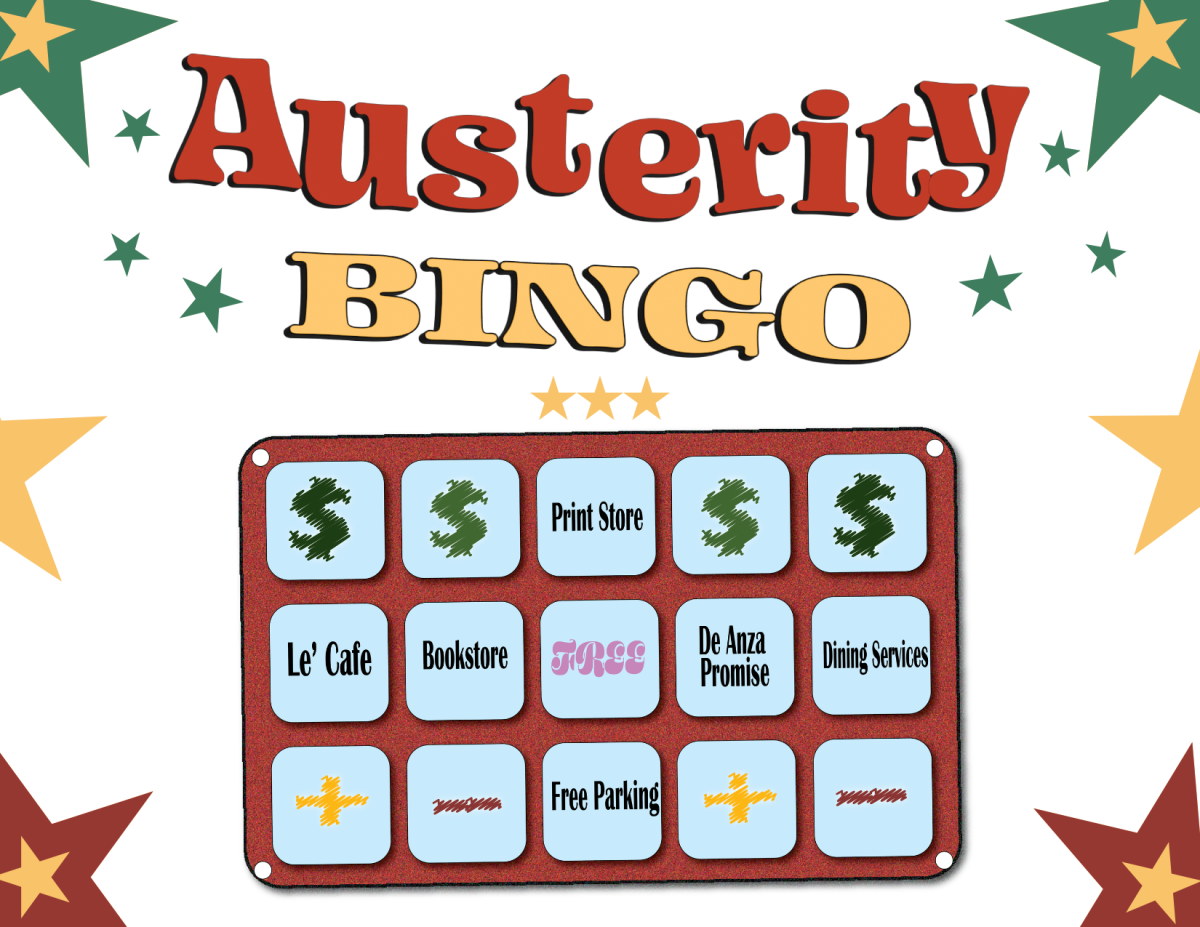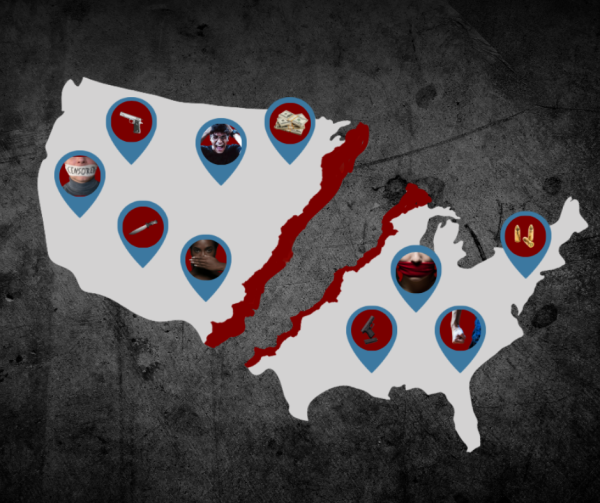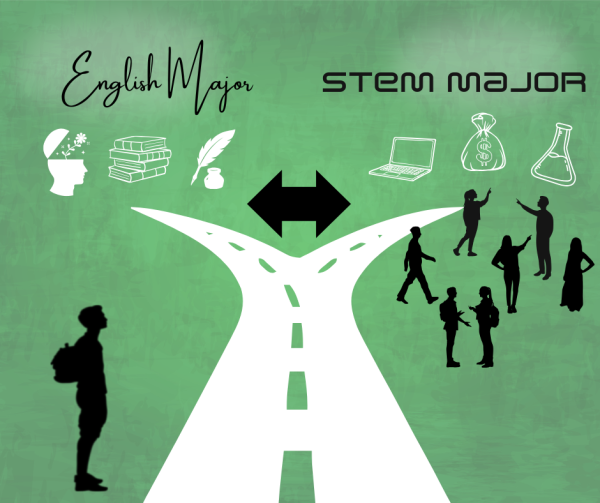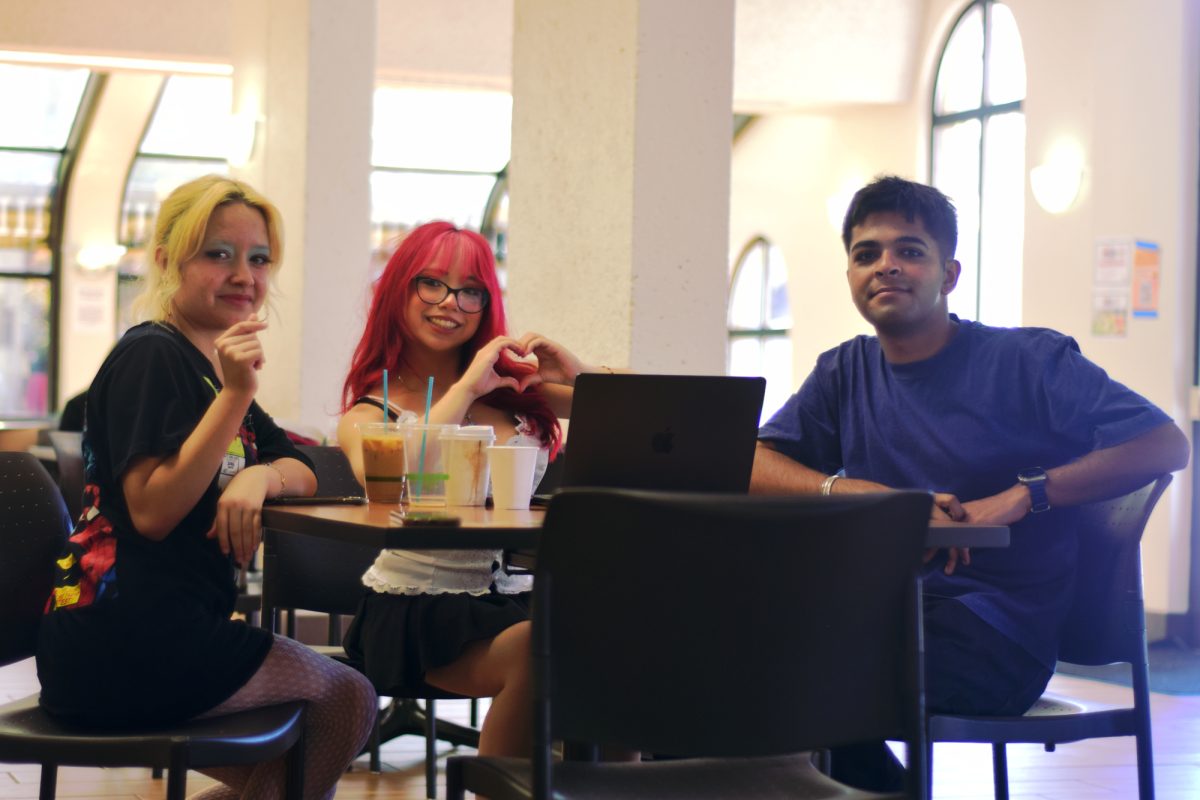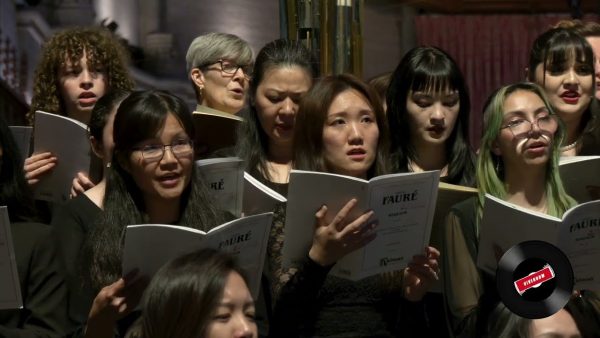Diving into Gen Z lingo, no cap!
June 16, 2023
“Bruh”, “hella”, “sus”, “cap” and “for real” are five slang words that are used most according to 50 De Anza students. However, do people completely understand their meanings?
“(The slang’s origin) is random,” Brian Blodgett, 19, a computer science major, said about today’s language. “But it’s simple and fun in (the sense of) substituting words.”
Linguistically, today’s slang can be interpreted in different ways.
Cristin A. Boyd, an ESL adjunct lecturer, said that the terms young people use today are not really slang.
“(I think) from a purely linguistic perspective, what Gen Zers use today is not always slang, but textspeak, which Oxford (dictionary) defines as ‘the kind of language and spelling, often containing short forms of words, that people use when they are writing text messages’,” Boyd said.
Jill Quigley, an English professor, said that slang can show how young people understand and use language.
“Slang serves as a timestamp of how we understand things because it’s specifically (used by) a generation,” Quigley said. “There’s a sense of excitement and urgency in (Gen Z’s) collective voice.”
Selected students who responded to the question: “What slang do you use the most?” all belonged to Generation Z , who, according to the Pew Research Center, were born between 1997 and 2012.
Quigley described Gen Z slang as bold, playful and expressive.
“Gen Z understands language is power, a twin-skin to identity and they can code-switch (language) like breathing, but still don’t take it all too seriously,” Quigley said.“That’s just ‘hella’ cool to me.”
According to the 2021 State of Influencer Marketing research by Klear, a program research about influencer marketing, over one-third of social media influencers are Gen Z. This is why the language they use has become a part of social media culture.
Blodgett said he thinks a lot of people adapt to Gen Z slang fast because they want to stay trendy and current.
“I watch a lot of sports, and whenever a team loses, for instance, the San Jose Sharks get beaten, (Gen Z) will say, ‘they’re smoking that Sharks’ pack’ because they just ‘got smoked’, ” Blodgett said. “The other day in the Boston Celtics versus Philadelphia game, the announcer looked like he couldn’t be any younger than 50, and he said those exact words: ‘Boston is smoking that Philly’s pack.'”
Boyd said that Gen Z slang is becoming more popular on social media because it’s easy to use in texting.
“It’s a lot faster to type ‘BTW’ than to type out the whole phrase,” Boyd said. “I also think that there is an urgency and a drive (for young people) to say things as quickly and concisely as possible; the speed of texting seems important.”
People from different generations seem to enjoy the emergence of Gen Z slang.
Quigley is part of Gen X, which includes people born between 1965 and 1980, or as she said, “the great auntie to Gen Z’s playful and radical use of language when it comes to nuance, satire, and rebellion.”
Quigley said that she was impressed by how Gen Z processes and describes a complex range of sophisticated ideas in clear-eyed terms.
“(Slang like) ‘Facts’ and ‘Periodt’ are both deliberate and flexible,” Quigley said. “Gen Z slang seems to invite in the more nuanced and subtle human experiences like ‘vibe, ‘cringe’ and ‘It’s giving…’ which are words used to convey felt experiences that are almost beyond description.”
Boyd said that she might not fully understand how to use today’s slang, but she doesn’t think there’s anything wrong with it.
“We had an interesting discussion about ‘cringe’, which my husband and I had not heard before and honestly had a hard time understanding how to use,” Boyd said. “However, even I have started to communicate more informally in emails and Canvas messages because it’s just easier and faster. Plus, I can connect better with some of my students.”
While the majority of people enjoy using Gen Z slang, there is a group that can’t understand the trend: people whose first language is not English.
“I remember when I was in ESL class, one person was trying to tell a (sex) joke with a slang word that (in informal meaning) is related to sex, and everyone was laughing,” said Catherine Pham, 24, a biology major. Pham was left confused when trying to engage in her native classmate’s joke and has never understood it since.
Minie Le, 19, a medical laboratory major said that she once missed submitting her quiz because she asked for help, but couldn’t understand her friend’s comments.
“He texted me, ‘I will help you ‘tmr’ but I had no idea what ‘tmr’ meant,” Le said. “I ended up failing the quiz because it was due on that day.”
The discussion between how Gen Z slang impacts today’s generation is still debatable.
Pham said that while using slang doesn’t help her learn English better, it helps her make more friends.
“English is my second language, so I would like to study the ‘formal version’ of it because it would apply to my career,” Pham said. “With slang, it’s easier to communicate with friends, but it can’t be used in a job or in the education environment”
Boyd said that there have been clear declines in people’s ability to pay attention to and digest longer text, causing her to transform what and how she teaches.
“I see issues with students’ abilities to think critically about topics, to brainstorm and develop ideas to write about,” Boyd said. “The nature of communication for all people, but in particular, Gen Zers, may be radically changing.”
Quigley said that she appreciates Gen Z’s social media voices and slangs in relation to the aesthetics of language, which she said as “feeling alive with promise,” such as the use of uppercase, lowercase, spacing and making connections in writing.
“Instapoetry is making poetry cool again, and Gen Z is reliving a 17th Century Edu period of Japanese haiku or a William Carlos Williams imagist moment in a new way. I love the aesthetic of lower case or upper case as rebellion and style, like yung pueblo or YUMI SAKUGAWA,” Quigley said. “There’s something so hopeful about authentic alignment (that keeps people) in the mundane of scrolling for more, like the recent trend of ‘romancing your life’, which is essentially if Jacques Derrida and Ross Gay had a TikTok baby, and I’m here for it.”
Despite the pros and cons, Gen Z slang is here to stay and the list of vernacular will continue to grow longer and longer.
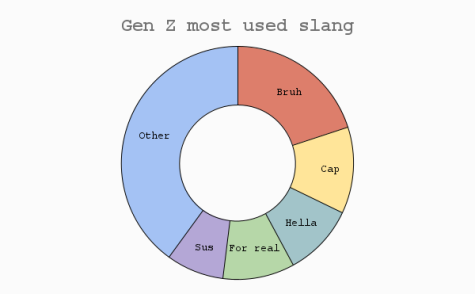
Per Urban Dictionary, here is the translation of the five most used Gen Z slang words that were introduced in the beginning of the article, so you can keep bussin’ with your Gen Z friends.
Bruh: This can be used when referring to close friends, co-workers and even siblings, or as an expression for any single situation possible, depending on your tone of voice.
Hella: This can be used in place of “really” or “very” when describing something.
Sus: This is short for suspicious and can be used when someone gives the impression of being questionable or dishonest. This word gained popularity as the catchphrase in the online multiplayer game Among Us.
Cap: This means lying.
For real: This means “seriously?” when used as a question and “I agree” when used as a statement.
And a bonus word, “bussin,” is usually used to describe tasty food, but in this context it means “keeping up-to-date” with your friends.
If you still struggle to understand Gen Z’s slang even after reading this list, Blodgett said that you shouldn’t be discouraged.
“(Even) If you feel like you’re not necessarily in on the joke yet,” Blodgett said. “You will get there.”



